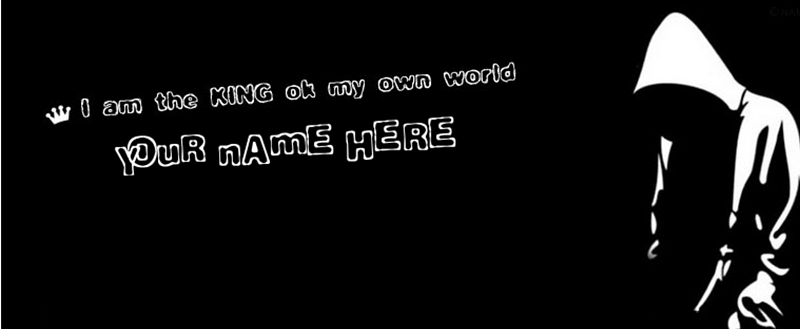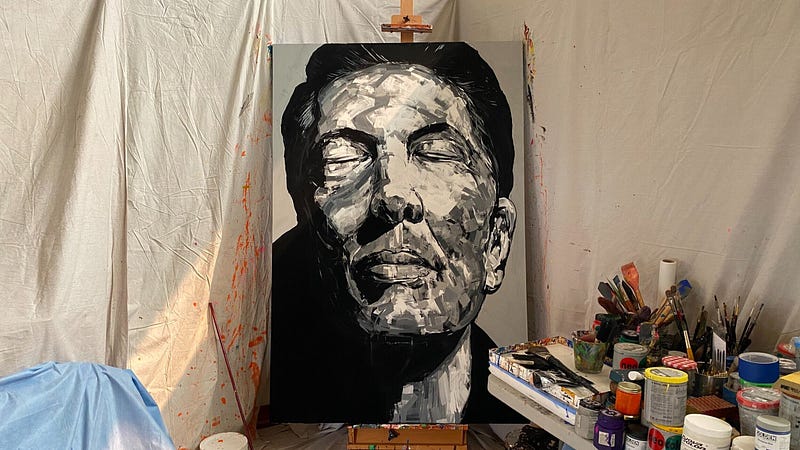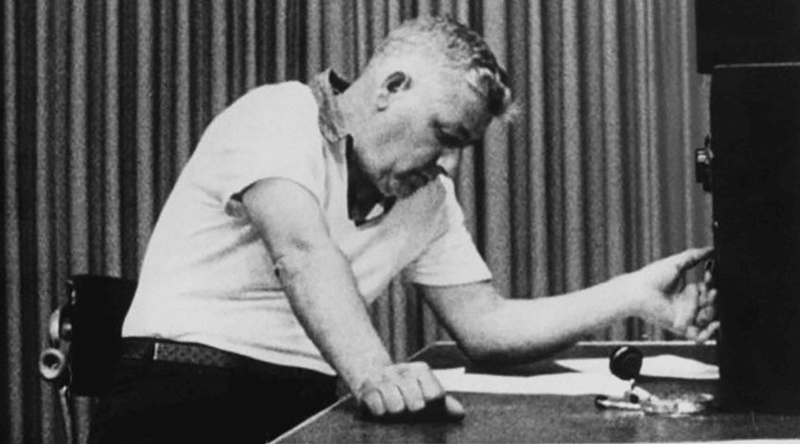Understanding Our Desires Beyond Identity: A Philosophical Inquiry
Written on
Chapter 1: The Misconception of Desire and Identity
Our desires do not define who we are. The contemporary belief that our aspirations equate to our identity is a troubling aspect of modern life that I attribute to a distorted understanding of freedom. Throughout my life, I have yearned for many things that I once thought would bring me happiness, only to find that they left me feeling unfulfilled. A glance at my teenage photos serves as a reminder of this folly.
I am immensely thankful that my past desires do not encapsulate my identity, especially since those who cared for me (like my parents) respected my aspirations without allowing them to define me. Desires can serve as indicators; they reveal insights about myself and my environment. It is a tragedy to confuse the indicator for the reality it points to. This confusion is particularly concerning as many children today are being taught that their desires encapsulate their essence, leading them to make irreversible decisions based on fleeting feelings.
How did we arrive at this point?
Our society is heavily centered on the concept of the Sovereign, Imperial Self, to the extent that many individuals are prepared to reshape reality to fit their desires.

We resist any form of external authority that demands we respond to an order that feels alien to the chaos of our unhealthy and often mimetic desires. To reframe this issue: the world must either adapt to my desires, or there exists a structured reality to which my desires must align.
However, this structured reality may be perceived as beneficial, detrimental, or neutral. If it's deemed neutral—or worse, harmful—why should we adjust our desires to it? What would motivate us to bring a child into a harsh world? Conversely, if it is good, our attention shifts outward. The journey of self-discovery transitions from uncovering 'my true desires' to engaging with a greater order—namely, other people—that lies outside of ourselves. This requires letting go of the desires that inhibit our experiences and keep us confined within ourselves.
This is why moments spent in nature, such as watching a stunning sunset, often lead to a sense of self-forgetfulness. Beauty has the power to liberate us from our self-imposed confines.
To nurture deeper desires, I have found it beneficial to focus less on them and more on immersing myself in environments and situations where I can connect with people and experiences that draw me outward—away from the superficiality of daily existence.
The term "obedience" originates from the Latin "obedire," meaning to listen or "to pay attention to." In Hebrew, a similar term is "shema," which signifies hearing and responding.
Section 1.1: Rethinking Obedience
Obedience can seem a peculiar notion for adults. It is something we associate with childhood, and we expect our children to practice it. But should this concept be limited to youth? Is it safe to disregard it as we mature? Certainly not; neglecting this virtue can be harmful.
I recognized early in my career that I struggled with working under others, leading me to establish my first business fueled primarily by my ego. Even though my previous boss was far from admirable, I would have remained just as discontent had I worked for a saint. I misidentified the core issue, often blaming others whenever their wishes conflicted with my own selfish desires.
As a founder and CEO, I paradoxically expected obedience from others, despite rebelling against authority myself. It took years to understand that my rebellious spirit was fundamentally mimetic. I perceived no individual worthy of my obedience—even God himself would not suffice.
We either emulate disobedience (which is rampant) or seek out positive models of obedience to emulate. There are no alternatives. This article challenges us to reflect on our relationship with obedience and identify whom or what we may be resisting.
If we are truthful, we might realize our rebellion is directed at our own limitations. Accepting these limitations humbly could lead to a freedom that remains elusive for many.
There are indeed those in positions of authority who lack compassion or wisdom, indifferent to the well-being of those under their guidance—often without even bothering to know them.
What, then, is the necessity of obeying such individuals, who wield authority for various reasons? In many instances, yes. One of life’s toughest lessons is that the submission of one’s will—sometimes to those we may disagree with or who seem unqualified—is often the path forward.
Fresh military recruits often stumble when they fail to grasp this fundamental principle.
The first video features Jackie Hill Perry discussing how our desires do not define our identity, emphasizing the importance of distinguishing between the two.
Section 1.2: The Nature of Justice and Obedience
I am not suggesting that anyone should comply with unjust orders or cause harm to others. However, it is also crucial to recognize the significance of enduring injustice gracefully, as life invariably presents us with challenges. Many react to every slight with outrage and a thirst for revenge, treating even the slightest offense as an act of aggression, whether intentional or not.

Life often transforms into a relentless pursuit of justice (as seen in much of American politics) rather than a journey motivated by love.
Obedience represents an act of will. We often engage in tasks we may not wish to perform but recognize that they serve the collective good, contributing to order.
Imagine a group gathered to achieve a common goal, with each insisting on doing only what they prefer—chaos would ensue. A sports team exemplifies this; obedience to a coach and adherence to team rules is paramount. Each member must submit their will to fulfill their designated role, even if it isn’t the one they would have chosen independently.
After delivering a talk to a professional sports team, a prominent player shared that he never realized his true strength lay in amplifying the talents of others. By concentrating on helping his teammates excel rather than focusing solely on his performance, he discovered that he too performed at his best.
The way he reframed his desires—sacrificing personal ambitions for the benefit of the team—transformed his perspective on his entire career.
I do not advocate for unhealthy obedience, like that seen in the notorious Milgram Experiment, where participants blindly followed authority figures to the extent of causing severe harm to others, counter to their instincts.

However, the horror of misguided obedience has captured public attention to the point where we seldom consider the value of righteous obedience.
One of the defining moments in my life occurred when I entered seminary, believing I had set my ego aside, only to find it reignited when assigned mundane tasks like cleaning the chapel or stocking vending machines.
In beginning this journey, I attempted to conceal my past or present it in the least intriguing manner possible, longing to fit in. Yet, when tasked with duties I deemed beneath me, I felt compelled to protest, “But I can offer so much more! Don’t you want to maximize this place’s potential?”
This mindset reflected a complete misunderstanding of the purpose of such assignments. I likened myself to a character in a Chinese wuxia kung-fu film, approaching a master only to be given remedial tasks I failed to appreciate.
It felt ironic to be asked to stock vending machines, considering my first venture was a health-focused vending business. I had to load junk food and Diet Coke into machines, an ironic twist I struggled to accept.
I regret how much I complained—internally, at least—without grasping the significance of the work. In seminary, authority figures didn’t ask who was best suited for cleaning or who excelled in Excel; tasks were assigned seemingly randomly, devoid of any consideration for individual strengths.
The goal wasn’t to optimize efficiency but to complete the work and remind us that we are the work itself.
We must each decide which models of obedience to follow. Perhaps a challenge for us in the days ahead is to willingly undertake work we haven’t chosen, simply because it needs doing.
What is our version of "showing up" and receiving an unexpected task from someone who trusts us to perform well—who may not care about our history or abilities? A figure who simply needs help, irrespective of our preconceived notions of what work should entail.
Since I last engaged in such work during a summer job in high school, I must now actively seek these experiences, regarding them as opportunities for growth.
Such tasks can serve as a remedy, a reminder of a reality larger than our immediate desires. Over the past year, this has manifested for me in caregiving, but opportunities for meaningful work abound if we remain open to finding them.
Now, if you'll excuse me, I have dishes to wash.
The second video explores the theme that our desires do not belong to us, reinforcing the message that our identities should not be confined to what we want.